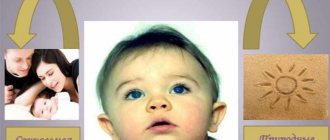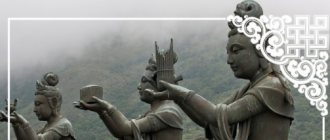What do you think allows a person to live a happy life, always move in the right direction, know exactly his desires and adequately assess his abilities? No, this is not education, not a good promising job, not connections in high circles, and not even an inheritance from his grandfather from Virginia Water. This is a person’s clear idea of himself, or rather a high level of self-knowledge. Indeed, if a person knows himself well and understands the characteristics of his personality, everything in this world is transformed for him. In this collection you will find materials that will give you answers to questions about what self-knowledge is, how you can know yourself, what you need to do for this, what techniques and methods to use. We wish you a pleasant acquaintance!
1
Diary as a universal way of self-knowledge and success
What image appears in your mind when you hear the phrase “keep a diary”? A gray-haired old man who wants to perpetuate his wise thoughts for future generations? A writer who forms prototypes for his works? A teenage girl who trusts her school notebook with her girlish secrets of her first love? You are right in all these cases! And add to this list people who have made an invaluable contribution to science, achieved success in various areas of life, and survived in extreme situations. Keeping a diary helped many of them with this. Read more…
2
Go back to the original material if you get stuck
Learning must be iterative.
More often than not, it takes several tries to learn something complex. In Feynman's method, returning to source material is an integral part of the learning process. When gaps in our knowledge arise and our explanations are not entirely correct, turning to primary and secondary sources can help reinforce what we have learned. It will likely take several iterations to get it right. This is good: the more you refine your explanations, the more your understanding deepens.
Graph showing back and forth movement between steps 3 and 2
Why this step works:
- Learning becomes an iterative process. Instead of viewing learning as a “one and done” thing, this step gives you permission to continually update your knowledge.
- You are actively involved in the process. Using sources to improve our own explanations and models is an active process. When we learn passively, it is more difficult to remember details. When we actively engage in creating our own conclusions and reasoning, intentionally drawing from original information to fill our blind spots, we can consolidate knowledge into our long-term memory more quickly.
- You expand your knowledge base. Paradoxically, the more we learn, the more our ability to learn increases. When you first look at a textbook chapter, it may seem like it's in a different language. The second time it becomes clearer. The third time, with a solid base in place, we pick up on nuances that we couldn’t notice before.
Self-knowledge: how to understand and use your character traits
Strong character traits are associated with personal and social well-being. Knowing the characteristics of your character, thinking and behavior, you can identify the most outstanding of them and use them in the best possible way in your profession, training and relationships. A feeling of uncertainty, a thirst for self-realization, a lack of internal harmony are signals that push towards self-knowledge. Through understanding ourselves, we can achieve satisfaction of our needs. In the article we will talk about the role of self-knowledge in a person’s life, introduce you to different types of character and give recommendations on how to use this knowledge for your own benefit. Read more…
3
An additional way to get to know yourself
In addition to the fact that you need to analyze your character, actions, and feelings, you can also interview your acquaintances, relatives and close friends about what kind of person you are. Even to the point of reading the questions out loud to them - let them give honest and sincere answers. If they contain criticism or negativity, don’t even think about being offended. For a person striving to know himself and change his life for the better, there should be no resentment or anger, but only the truth is important!
Start with those closest to you - husband, wife. Find out from them what they dislike most about you. When listening to the answer, do not concentrate your attention on the fact that your interlocutor really finds something negative. First of all, think about how to change yourself and perhaps you will find out that you spend too little time with your loved ones, or forget about vital events.
Now it's the parents' turn. These comrades will not miss the chance to remember your childhood and will blurt out everything to the fullest. Take poor care of your health, eat little liquid, neglect your appearance, rarely call them, forget to visit, etc.
Well, that’s it, now you can sum it up, but before that, compare your and other people’s answers. There will probably be discrepancies, but they are acceptable only in the category of error, so no concessions to you - be honest. As a result, your character, and with it your internal state and state of health, will begin to flow in a different, positive direction. After about a week or two, go to the mirror and take a closer look - is the same person as before looking at you with sincere, pure and loving eyes? No, this is a different personality, inside of which grandiose transformations are taking place!
Mindsight or the path to self-knowledge
The path to harmony begins with self-awareness. But what is self-awareness? This process was described in most detail by one famous doctor, professor at the School of Medicine at the University of California at Los Angeles (USA), director of the Mindsight Institute he founded, Daniel Siegel, who became the founder of a previously virtually unstudied discipline - interpersonal neurobiology (mindsight). The term “mindsight” comes from mind (mind) and insight (insight). The essence of mindsight is to know yourself, which helps to get rid of fears, obsessions, worries, depression, self-doubt and many other personality problems. In this article we will talk about the features of a mindsite and the reasons for its effectiveness. Read more…
4
Knowing yourself - the first steps
It was absolutely clear that a person is not only a physical body, because the joys and pleasures of the body gave me so little and did not satiate my soul at all. In fact, my own body was much more often a burden to me. He had to be fed and bathed. Keep fit and dressed. Take care of him constantly. It was incredibly annoying at times.
I read somewhere that “the body is a prison of the spirit,” and I completely agreed. I knew for sure that a person was born for great achievements, and not at all to provide his physical body with bliss and all kinds of comfort.
The process of self-discovery assumed that I would finally find this real tool with the help of which a picture of the world around me and my place in it would come together. In the end it happened, but first the seven circles of hell awaited me.
Psychological portrait of yourself
A psychological portrait of oneself (self-image) is a mental picture that is usually quite resistant to change. It depicts not only details potentially accessible to objective research (height, weight, hair color), but also those traits and qualities that a person ascribes to himself, based on personal experience or learned from others. Self-image in its most basic form is an internal picture. This is what and how you think about yourself, based on what you see in the mirror every day, how you communicate with other people, and what kind of productivity you have at work. A psychological self-image is an impression that forms a general idea of your assets and liabilities. In other words, it is how you yourself assess your strengths and weaknesses. Read more…
8
How to take the test
Let us tell our readers right away that you do not need to quickly answer all the questions presented. Moreover, this cannot be done. Read them carefully and analyze each of them. We have already said that they were not taken from the ceiling, but were developed by experienced psychologists and tested in numerous surveys. As a result, you will make a mistake and begin to answer in a standard, stereotyped manner, “sorrying” yourself and your nerves.
How to work with questions
Among those presented there are those who simply assert one or another quality of a person. If you don't have it, skip it. For example: “Why do you smoke?” There is a statement here, and you are a non-smoker, so we bypass this question.
Not all questions evoke the same emotions. Some puzzle a person, while others do not cause any sensations. So let's begin.
- Why on earth should I care about what other people think of me?
- How do my friends feel about me?
- For what reasons am I unable to be alone with myself?
- Why do I drink alcohol?
- Why am I such a shy, timid person?
- For what reasons is it so difficult for me to make new acquaintances and friends?
- How do my children treat me?
- Should I be the best person in the world, different from others in perfection?
- I have a difficult and unfair fate, so what?
- Why do I swear so often and a lot with swear words?
- What is happening in the world around us?
- Do I like my job and position?
- What do I need from this life?
- For what reasons and factors are my plans not being fulfilled?
- How satisfied am I with the choice I made?
- Why on earth should you worry and be nervous?
- Who is responsible for all the problems in my life?
- Who is responsible for the fact that I became like this?
- Is the path I chose the only correct one?
- What factors and people prevent me from living the way I want?
- Does anyone owe me anything in this life?
- Do I owe anyone anything in this life?
- Why do I quarrel with my husband (wife) every now and then? What's the point in our scandals? Do our quarrels lead to anything useful, do we find anything valuable in them?
- Why do all my emotions immediately get the better of me?
- So what if I'm in a bad mood?
- Why do I need a third watch or a tenth dress?
- What will happen to me, my health, body, mind in ten, twenty or thirty years? Will the course of my life change, what will I do, will I be able to continue in the same spirit as now? How suitable are these prospects for me?
- What will my health be like if I continue to lead this lifestyle in the future?
- What will happen to me when I get old, what things will give me pleasure and pleasure that make me happy at the moment? Will I be able to enjoy the same food, drink, sex and other things?
- What's going on at my work?
- How satisfied am I with my job in terms of financial security? Is my position the work of my whole life?
- Why can’t I organize other ways to generate income, other sources?
- What will happen to me and my life if I lose my job?
- Why can't I start working remotely?
- Why don't I start my own business?
- So what if I’m not as lucky as others, that I’m not as lucky?
- What will I be doing this coming weekend, and what will happen next? What do I do with myself on weekends?
- Why do I smoke?
- How much time do I have for rest?
- Am I satisfied with the amount of free time?
- Am I getting enough sleep?
- Am I in good physical shape?
- Am I feeling good?
- How can I maintain my concentration?
- How should you eat properly?
- Why do I stay late at my job?
- How much do I manage to pay enough attention to my loved ones?
- Why am I late at work? What happens if I start going home on time?
- Why did I begin to profess this particular religion and not another? Are other religious movements wrong?
- Have I always diligently followed and continue to fulfill the ancient commandments of my religious movement? If I don’t do this, then how will my soul be saved, what can I be sure of?
- What is the meaning of human suffering?
- What hobbies interest me, what attracts me, what am I interested in?
- How much time do I always spend on different social networks?
- How much time do I devote to watching TV?
- How many books have I been able to read in the past year?
- What other interesting music is there?
- How erudite and educated am I?
- Why doesn't planet Earth fall on the Sun?
- How is genetic and hereditary information encoded?
- What does an atom consist of?
- How many foreign languages do I know?
- Do I respond adequately to outside criticism?
- When was the last time that I agreed with an outside opinion that did not coincide with mine, and I openly admitted it?
- What is the meaning of discussions, disputes, in which each disputing side stands on its own, and we do not accept opinions from the outside? Is it really in such situations – during disputes – that the very truth is born?
- Why and why should I prove something to someone?
- When was there a case when I praised strangers, sincerely threw compliments in front of them?
- How am I better than those people whom I really dislike?
- Why and why do some people not like me?
- Why and why do some people love me?
- Why do I love the people I really love?
- How much have I tried to ensure that my strong personal qualities become even stronger and negative shortcomings are eliminated?
- How long ago did I give a gift to someone close to me, without any reason?
- How long has it been since I visited my relatives, especially the elderly?
- What is the number of those who are ready to provide me with selfless, free help at the moment when I desperately need it?
- How long has it been since I cleaned my house?
- How often do I sit alone and think about life?
- How long has it been since I took actions that were not approved by others, and as a result I was satisfied with my position, choice?
- Am I completing my tasks?
- How developed is my sense of humor?
- How often and how much can I laugh?
- Do I enjoy my life?
- How happy am I, and am I happy at all?
- How often can I complain about my life?
- There are people who have to live in hunger, cold, without a roof over their heads, surrounded by threats and dangers to their lives. Then why do I consider my troubles and problems so serious and significant?
- Am I doing everything to make my life better?
- Why do hostilities and wars occur in the world?
- Where do my phobias and fears originate? Why am I so scared of mice, because they are not capable of harming me?
- Why should I be offended by strangers?
- Why do I need to pretend to be someone I am not?
- What are my life, serious mistakes and misdeeds?
- Why do I live alone?
- How useful are my principles, my point of view, my worldview?
- Who are my friends, what kind of people are they and why do we continue to be friends?
- What factors and indicators determine my behavior?
- On what day did I last clean my own apartment, my desk?
- So what is “good” and what is “bad”?
- How attentive (attentive) am I when I listen to others - friends, loved ones?
- Have I brought much suffering to those around me?
- Why am I ashamed of my relatives and loved ones?
- What do I know about death?
Our dear readers who want to grow spiritually will answer, analyze and discuss these questions with great interest. But we still recommend giving only your answers, and not those that were given at the family meeting. Thus, each of us will be able to perfectly know ourselves, our essence, inner world, habits, tendencies in character and spirituality. As soon as we are able to solve our own riddles, we will move towards improving our qualities by leaps and bounds.
An important point in self-knowledge is a person’s desire to begin the process. So that it is successful and only sincere and honest answers can be given. It is necessary to keep a diary in which you will reflect your thoughts, analysis, and emotions.
Every new emotion, curiosity, indignation, stress - everything needs to be described in your diary. Write everything in it, including your complaints about the environment, your own actions, ridiculous, unpleasant situations - paper will endure everything!
To reduce the intensity of passions and calm your inner world and nerves, take up meditation. This is an integral part of various Eastern practices. It allows a person to concentrate his attention on the main thing and analyze everything that is happening impartially.
Retreat to a secluded place where it will be quiet and not crowded, and take a position that is comfortable for you - lie down, sit cross-legged. Take 10 breaths (deep). Eliminate everything unnecessary from your head. Don't think about what you need to buy in the store when you pick up your children from kindergarten. Get rid of the hassle!
What questions should you ask yourself?
Steve Jobs and Thomas Edison asked themselves the right questions, Rodion Raskolnikov - the wrong ones, Hamlet - controversial ones. They found answers to them and made decisions, performed certain actions, and arrived at certain results. But what is all this for? And to the fact that the questions that we ask ourselves and the answers that we give to them determine a lot in our lives. Therefore, it is important to ask yourself the right questions. The answers to them will be a kind of guide to life that will not let you stray from the right direction and will tell you what to do in difficult times. Read more…
9
Third stage - Here and now
He will teach you to be “here and now.” This is how Osho described in his book “Mindfulness” about the practice of being “here and now”:
The only thing you need to learn is observation. Watch! Watch every action you take. Observe every thought that passes through your mind. Observe every desire that comes over you. Observe even minor gestures - how you walk, talk, eat, take a bath. Continue to observe, in everything, everywhere. Let everything become an opportunity to observe.
Don't eat mechanically, don't just go on stuffing yourself with food - be very observant. Chew carefully and observantly... and you will be surprised at how much you have missed until now, because each bite will bring great satisfaction. If you eat mindfully, the food will taste better. Even ordinary food becomes the most delicious if you are observant; and if you are not observant, you can eat the most delicious food, but there will be no taste in it, because there is no one to observe. You just keep stuffing yourself with food. Eat slowly, observantly; Each piece must be chewed and felt. Inhale the smell, feel the touch, feel the gust of wind and the sun's rays. Look at the moon, and become just a silent pool of observation, and the moon will be reflected in you in immeasurable beauty.
Move through life while remaining completely observant. Again and again you will forget. Don't become unhappy because of this; it `s naturally. There are millions of lives you have never tried to observe, and it is so simple and natural that you keep forgetting again and again. But the very moment you remember, observe again.
Remember one thing: when you remember that you forgot to observe, do not regret, do not repent; otherwise you will waste your time. Don't feel unhappy: "I missed out again." Don't start feeling, "I am a sinner." Don't start judging yourself, because this is a complete waste of time. Never repent of the past! Live in this moment. If you forgot, so what? It’s natural—it’s become a habit, and habits die hard. And this is not just a habit learned in one lifetime; these habits have been established over millions of lifetimes. So if you can remain observant even for a few moments, be grateful. Even these few moments are more than you can expect. He is watching. He is clear.
“I-concept”: characteristics, features, meaning
The term “Self-concept”, which can be heard today from psychologists of various directions, sociologists and other specialists in the field of the personal sphere of a person, is interpreted as a system of ideas of an individual about himself. These ideas can be perceived by a person to varying degrees and be relatively stable. This concept is the result of a person’s self-knowledge and self-evaluation through individual images within various real and imagined situations, as well as through the opinions of others and a person’s correlation of himself with them. Taking into account the relevance of this topic, we want to talk about the “I-concept”. Read more…
10
The structure of self-awareness
Personal self-awareness includes several components:
- understanding oneself (cognitive component) - deep knowledge about oneself, building a self-concept. It includes the idea of oneself as real, ideal, fantastic, as others see;
- attitude towards oneself at the emotional level - the ability to accept oneself with all the shortcomings and advantages, self-confidence or lack thereof. Self-esteem is formed from the first years of life under the influence of the attitude of parents and other significant adults towards the child; later it strengthens or, conversely, weakens when comparing oneself and others;
- the ability for self-regulation (behavioral component) - manifests itself through the desire for acceptance in society, to meet the requirements set by it, the desire to achieve respect;
- self-actualization - the desire to maximize one’s abilities. It manifests itself in the ability not to put off what is planned for later, in doing things that bring pleasure, constant development, the ability to accept innovations and adapt to them, awareness in relation to life, self-confidence;
- the degree of aspiration - in the desire to achieve more, the ability to set goals that are outside the zone of existing competencies.
In some sources, the components of self-awareness look like this (see table):
| intellectual | includes the ability to self-observe, stable self-esteem |
| self-regulation | is formed under the influence of self-esteem. The more stable it is, the greater the ability to self-control. |
| self improvement | deep understanding and acceptance of “I” images |
Personal self-awareness is not a static formation, but a process that requires constant development and improvement. If at any stage of life a person stops developing, his level of awareness decreases.
Online program "Self-knowledge"
In this program, in just 4 weeks, with the help of psychological tests and exercises, you will find out what you really want in life, understand your strengths and weaknesses, realize the characteristics of your internal motivation and thinking, learn to use the characteristics of your character, determine your values, creative and professional predispositions that will help you find a job you like; you will understand how to demonstrate your leadership and team qualities not only at work and in business, but also in family and relationships. In addition to all the knowledge gained, you will receive recommendations for practical use in life. Find out more...
Self-knowledge is the road to a life that has no regrets and can be lived with pleasure again. Start it immediately, and then there will be many more happy days in your life!
We also recommend reading:
- Storytelling
- Rules and secrets of self-education
- Self-knowledge: how to understand and use your character traits
- “What is in your character?”
- Secrets of inventors: a selection of useful materials
- MAC therapy: the first step on the path to yourself
- Exercises for self-knowledge
- Effective methods of self-knowledge
- Diary as a universal way of self-knowledge and success
- Practical benefits of self-knowledge
- Conditions for character formation
Key words:1Self-knowledge
What does it mean to know yourself
Confessors say this is the most important thing in life. We must know what is happening in our soul, thoughts, heart and understand where we are going in life, to what denominator. Those who have already managed to know themselves are very familiar with their preferences, guidelines and aspirations. And only in this way, having known themselves, they were able to completely gain control over their existence and easily manage those processes that are responsible for our every action, including the physiological aspects responsible for our health.
In such cases, many people ask a logical question: “Shouldn’t the first thing be knowing God?” No, first of all, study yourself, otherwise it will be impossible to know the Lord, because we are His reflection, created in His image and likeness.
According to confessors, you need to start with the good, that is, lay a positive foundation. For this, correct, objective self-assessment is important, which each of us gives most often with an error. And the reason for this is our own negative sides, habits that have taken root in our inner world and distort the objectivity of our view. So, the majority views their person through the veil of their own egoism and after analysis, it seems to us all that we are not so bad.
We often visit holy places, periodically fast, try not to speak rudely on holidays, etc. We believe that by doing this we have already earned ourselves a “bonus” and we praise ourselves, comparing ourselves with other, “bad” people. This is where the mistake lies. First of all, there is no need for comparisons; you need to set yourself a bar to which you need to grow and grow.
And if, as you think, you have achieved it, raise it even higher. As we know, there is no limit to perfection! And the process should consist of internal cleansing, and only then can changes in the positive side of the external component of a person be considered. Believe me, they will.
Also, representatives of the Christian clergy are often asked the question: “What happens if a person does not know himself? What does this mean? Is there a chance of salvation? The answer will be disappointing - “No! After all, if we ourselves do not recognize this, how can the Lord God save us?” After all, in order to “define” the soul in one direction or another, he needs to study it, and in a closed person, this is darkness. So, those who do not know themselves will only follow the negative path.
As we know, the main quality of a Christian is love. And she must be pure, sincere. It is impossible to feel this phenomenon for anyone according to our religion if we do not know ourselves and then cleanse ourselves of negativity. Therefore, we suggest that you do not put this important point aside and start working on yourself.
Let's start asking ourselves questions developed by experienced experts and tested in numerous surveys over the years. Believe me, there is nothing superfluous in our test. The main rule is to answer honestly and openly, without hiding anything. Stop deceiving yourself and start exploring your inner world. And if you encounter negative moments along the way, start fighting them.
We want to say right away that the questions will not be easy. Some may find them inconvenient and capable of touching a nerve: pride, pride, boasting, anger, envy, etc. But if we do not get down to business now with all determination, then it will be too late. It won’t be long before we have to “unravel” the mess of our ignorance, misconceptions and erroneous choice of life path.
[product_block id=”10988"]
Therefore, there is no need to be offended by uncomfortable questions. We want to help you, not disappoint you. You understand that solving any problem requires some sacrifice. In your case, you will sacrifice your ambitions, well, at least for the period of getting to know yourself. And here I must say honestly - you will never be able to stop this process! This means that you will never be an ambitious, arrogant, ill-mannered, impolite, envious, angry, jealous, greedy, mean, selfish, mercantile person.
Important: you should not start applying our recommendations to those who are deeply depressed or under stress. Put the article aside and wait until your nerves calm down.
Those who are determined, excuse the tautology, to resolve the issue, know their problems by heart. For example, a lazy person knows that it is difficult for him to take on some business precisely because of his laziness. This means he needs to fight it, practice self-discipline. So let's start working on ourselves together and set ourselves up for a successful result, because we know about our shortcomings, right?










